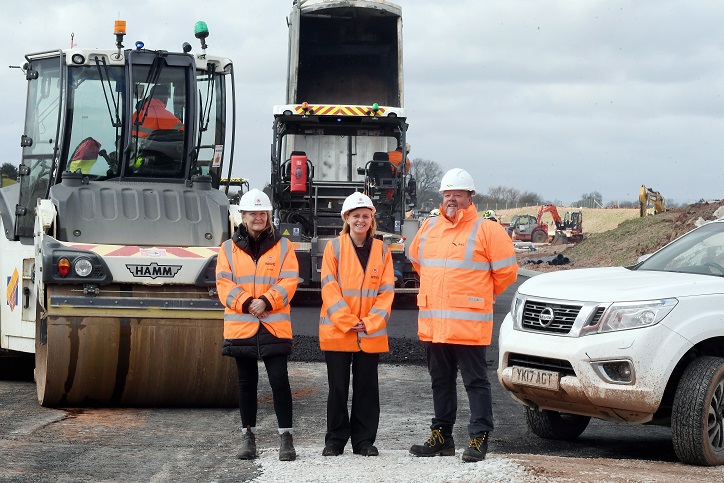Yorkshire-headquartered group continues expansion with purchase of East Midlands insurance broker
Government reveals largest-ever R &D budget – worth almost £39.8bn
“My department’s £39.8 billion R&D budget – the largest ever R&D budget committed so far – will be deployed and specifically targeted to strengthen Britain’s comparative advantages, supporting the best ideas to become the best commercial innovations, and securing the UK’s position as a science superpower.
“This includes full funding for EU programmes, for which £6.8 billion has been allocated to support the UK’s association with Horizon Europe, Euratom Research & Training, and Fusion for Energy. If the UK is unable to associate to Horizon Europe, the funding allocated to Horizon association will go to UK government R&D programmes, including those to support new international partnerships.” A significant proportion of the budget has been allocated to UK Research & Innovation (UKRI), which will receive over £25bn across the next three years, reaching over £8.8bn in 2024-2025, its highest ever level and over £1 billion more than in 2021-2022. This will include an increase in funding for core Innovate UK programmes by 66% to £1.1bn in 2024-2025, helping connect companies to the capital, skills and connections they need to innovate and grow. The UK Space Agency’s budget will also grow to over £600m by 2024-2025, recognising the fact that our world-leading space sector adds nearly £16bn to UK GDP while underpinning complementary parts of the economy including finance, logistics and agriculture. This is equivalent to a real terms increase of 14%.Lincolnshire councils urge residents to offer accommodation to support Ukrainian refugees
Lincolnshire councils are encouraging those who can, to step forward with an offer of accommodation and help in supporting the resettlement of Ukrainian refugees into the County.
- There is a further programme through which Ukrainians resident in the UK, or UK-residents can take in family members fleeing from Ukraine. Details at www.gov.uk/guidance/apply-for-a-ukraine-family-scheme-visa
- For an overview on ways to help, see: www.gov.uk/government/news/ukraine-what-you-can-do-to-help
- Working together through a local charity or faith group, communities can collaborate as ‘community sponsors’. For detail email: communitysponsorship@homeoffice.gov.uk
- Private landlords, businesses and property owners willing to offer up homes in Lincolnshire for those seeking sanctuary are invited to email LincsResettlementPartnership@n-kesteven.gov.uk
- Donations of money are encouraged to organisations or community groups that demonstrate an understanding of community needs, safe and legal working practices, and systems of accountability. These include:
- https://www.totalgiving.co.uk/appeal/LincolnshireCF-Ukraine
- Disaster Emergency Committee website
- British Red Cross: Humanitarian aid in Ukraine website
- MSF Doctors Without Borders website
Cawarden extends sponsorship deal with Burton Albion
Planning application submitted for new Derby Business School
A planning application for a new Derby Business School has been submitted by the University of Derby, bringing its plans to grow its presence within the city centre a step closer.
The proposed development is set to be built on land adjacent to the University’s One Friar Gate Square building in the city centre.
Projected to be the study base for more than 6,000 students by 2030, the plan is to create a central hub providing students, researchers, academics and the wider business community with access to research and development, expertise, key facilities, and learning and networking opportunities. The Business School will kick start the University’s recently-announced City Masterplan – the vision for how it intends to develop its city centre footprint and improve connectivity between its sites. If approved, construction is due to commence in November 2022, with the building set to open in September 2024.Fancy a Tesla? – How to electrify your marketing with referrals: Greg Simpson, founder of Press for Attention PR
Historic bus operator providing vital service for Peak District residents secures funding
CECA Midlands appoints new regional director
North Northamptonshire bids to become new HQ for Great British Railways
Mansfield selected for pilot to shape design of neighbourhoods
Residents in Mansfield will lead the way in shaping the future design of their neighbourhoods under a trailblazing new design programme.












